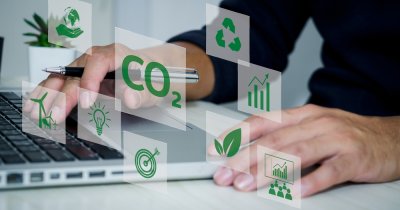Russia is one of the most important suppliers of oil and gas, and according to CNBC, multiple major economies of the world have discussed how they could rely less on hydrocarbons coming from Russia.
U.S. and European Commission officials have met Friday, March 25, in order to discuss the matter of energy security and how to develop alternatives to fossil fuels in order for the U.S. and the EU to become more energy independent.
The U.S. is working hard in order to provide at least 15 billion cubic meters of extra liquefied natural gas for the European Union this year, with quantities possibly growing in the future.
Joe Biden, president of the United States, said that the U.S. and EU should "work together to take concrete measures to reduce dependence on natural gas and to maximize the availability and use of renewable energy."
These measures aim not only to reduce the current reliance on fossil fuels around the world, but also to tackle the effects of climate change.
This matter was discussed further on Monday, March 28, at the Atlantic Council's Global Energy Forum in Dubai.
Here, Claudio Descalzi, CEO of Italian energy company Eni, said that we need to find multiple sources that can replace fossil fuels, as there is no singular option in this sector.
He stated that "we never found a source, or energy source, that replaced everything. It’s crazy to think that there is something that can replace everything."
Anna Shpitsberg, deputy assistant secretary for energy transformation at the U.S. Department of State, also commented on the matter, saying that hydrogen is "a game-changing technology that speaks to a variety of other sources … because it can underpin nuclear, it can underpin gas, it can underpin renewables."
She also insisted that beside multiple fuel alternative technologies, multiple supply routes should also be created to avoid relying just on one.
Hydrogen has some huge potential in this segment
Hydrogen is described by the International Energy Agency as a "versatile energy carrier", since it can be used both in various industries and for transport.
Another advantage of hydrogen is the fact that it can be produced in many ways, one of which is electrolysis, which implies driving electricity through the water in order to separate it into oxygen and hydrogen.
If the procedure is done using electricity that comes from renewable sources, like solar panels or wind turbines, then it can be considered green hydrogen.
Renewable and sustainable fuel alternatives are a necessity, since the IEA recently reported that global CO2 emissions grew by 6% in 2021, reaching a historic high of over 36 billion metric tons.
Out of all the fossil fuels responsible for this growth, coal was responsible for 40% of it, which motivates global economies even more to find green alternatives that would help bring those numbers down.
 Mihai - Cristian Ioniță
Mihai - Cristian Ioniță












Any thoughts?